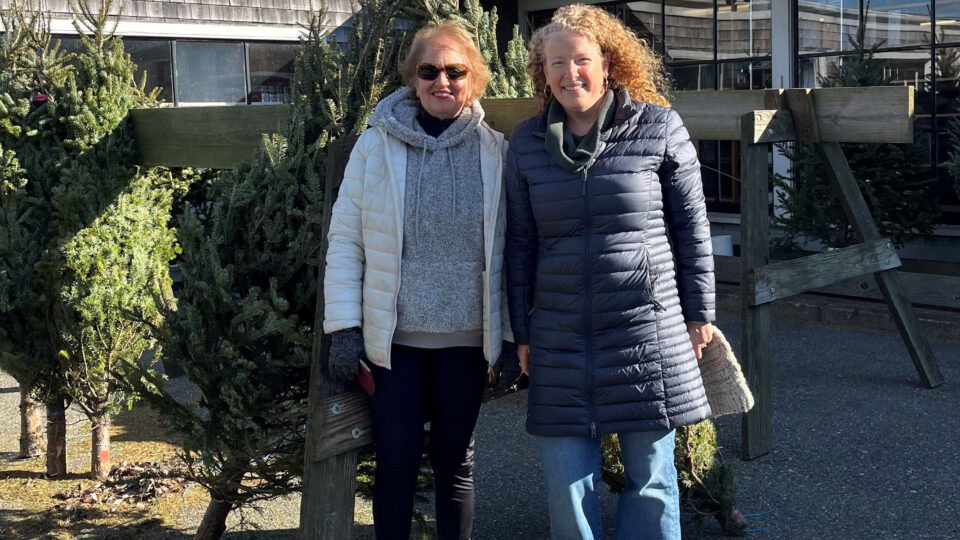Every 6 months, we ask our grant recipients to report back on the impact that the Nantucket Fund has had on their clients and the community at large to ensure that we effect positive change on Nantucket. In 2022, we awarded a total of over $300,000 to 27 local nonprofits representing the rich diversity of our community and our community needs.
CFN is proud to support our nonprofit partner and Nantucket Fund grantee Nantucket Food, Fuel & Rental Assistance, who served over 19,895 individuals in the second half of 2022 through their Food Pantry, by giving a supplemental year-end grant to provide holiday cheer to island residents. This past holiday season, families were provided trees from Marine Home Center along with string lights thanks to a supplemental Nantucket Fund grant.
CFN believes small acts make a big difference in the lives of our island neighbors. One family shared, “Thank you for donating a beautiful tree, which I love, at the holiday season. I planted it outside on my front lawn in a big pot…with the lights you also sent. I intend to leave it up all winter!”

In addition, one of our partner nonprofits and Nantucket Fund grantee, The Bulgarian School, celebrates our island’s rich diversity and provides educational opportunities for young Nantucketers. Students learn the Bulgarian language, about other cultures and how to communicate effectively with others.
At the Community Foundation for Nantucket, our goal is for all islanders to flourish and fulfill their potential. We support our Nantucket community by building flexible resources to quickly and effectively address the island’s most pressing needs. We maintain an in-depth knowledge of our Nantucket nonprofit sector and provide opportunities to hear from our community and nonprofit stakeholders at regular convening sessions.
In addition, thanks to the Nantucket Fund, we provide strategic grant making to island nonprofits touching key aspects of our island community including child care, elder care, education, affordable housing, mental health & substance use disorder and food insecurity.

